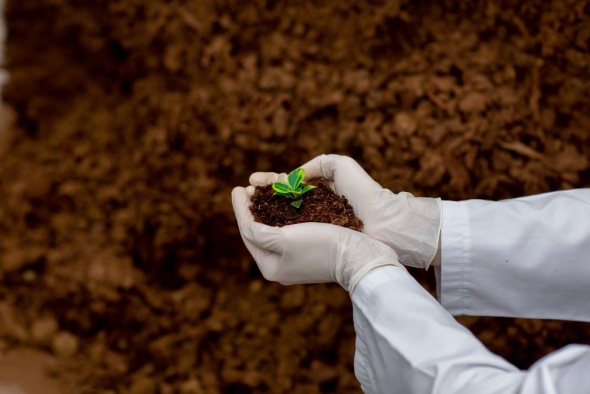As a homeowner, maintaining a lush and safe yard is essential for the overall quality of the premises. One way to achieve this is through landscaping, especially tree planting. Before undertaking such an endeavor, hire a tree care company to conduct a soil test. At the Sesmas Tree Service, we leverage extensive expertise and innovative equipment to assess the composition and condition of the soil on your property. This goes a long way in ensuring the success and health of newly planted trees, mitigating premature tree removal emergencies. Here are the reasons you should consider this essential practice.

If you have a tree planting project lined up, hiring certified arborists to perform an in-depth soil test helps assess the nutrient levels. We can determine the specific nutrient required for healthy growth and development depending on the tree species you want to plant. By conducting a soil test, you can identify deficiencies or imbalances in essential nutrients such as nitrogen, phosphorus, and potassium. This information is vital for tree service providers and homeowners, as it ensures newly planted trees have access to the nutrients they need to thrive.
Soil pH is critical in nutrient availability and uptake by tree roots. Some tree species prefer acidic soil conditions, while others thrive in alkaline or neutral soils. As a trusted tree care company in Buford, we conduct comprehensive assessments to determine soil pH levels accurately. If the pH falls outside the optimal range for the desired tree species, we can recommend adjustments and soil amendments, such as lime or sulfur. Maintaining the proper soil pH level creates a favorable environment for root growth and nutrient absorption, promoting healthier growth and preventing premature tree removal emergencies.
When you think of recycling, you probably think of plastic, metals, and cardboard, but did you know that tree recycling is…
Learn MoreProperty management companies and HOAs in Georgia are required to maintain their retention ponds to make sure their stormwaters on their properties…
Learn MoreStorms can leave behind broken limbs, split trunks, and fallen trees that block access and threaten nearby structures. In those moments,…
Learn MoreThe reasons for tree removal vary quite a bit. Perhaps you've moved into a new home and want to get…
Learn MoreAre you looking for a trusted tree service or tree removal in Atlanta? Look no further as…
Learn MoreSome tree removals reach a point where standard equipment simply is not enough to do the job safely. Tight clearances, extreme…
Learn MoreYour Trusted Local Arborists in The Metro Atlanta Trees are a lot more than a trunk, some branches,…
Learn MoreThat inanimate tree standing outside on your lawn may seem harmless, but it can surely cause a lot of damage. There…
Learn MoreProper soil drainage is essential for the health and survival of trees. If the soil in your yard is excessively wet or poorly drained, it can cause root rot and other water-related issues. In addition, overly dry soil may cause drought stress and stunted growth. A comprehensive soil test provides valuable insights into the soil’s drainage characteristics, including its texture and structure. Certified arborists use these results to improve soil drainage and implement measures, such as incorporating organic matter or installing drainage systems.
Sometimes, soil contamination may risk tree health and human safety. Contaminants such as heavy metals, pesticides, or pollutants from previous land use can adversely affect tree growth and pose potential health hazards. Conducting a soil test allows homeowners to assess any harmful contaminants and take appropriate remedial action if necessary. Depending on the severity of the contamination, tree service experts can tailor mitigation measures, including soil removal and remediation, or select tree species that are tolerant of contaminated soil conditions.
The goal of conducting a soil test before tree planting is to set the stage for long-term tree health and success. By addressing soil deficiencies, adjusting pH levels, improving drainage, and mitigating contamination risks, homeowners can create an optimal growing environment for their newly planted trees. Once your trees thrive and reach their full potential in the landscape, routine care practices like tree pruning or tree trimming sessions are essential.
Performing a soil test before tree planting is a proactive measure that homeowners can take to optimize growing conditions and promote their trees’ long-term health and success. Contact us at the Sesmas Tree Service and schedule a soil test to implement proper management practices, setting the stage for vibrant and resilient trees. We provide exceptional services, including tree pruning, fertilization, and tree trimming.
Stay updated with the latest tips, trends, and insights from Sesmas. Explore expert advice on tree care, safety, and maintenance to keep your landscape healthy and beautiful year-round.
View All